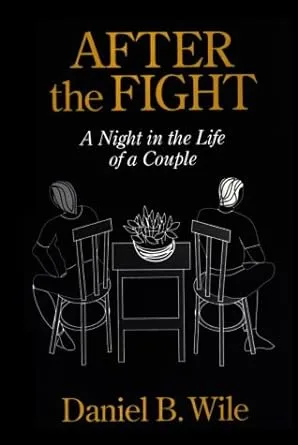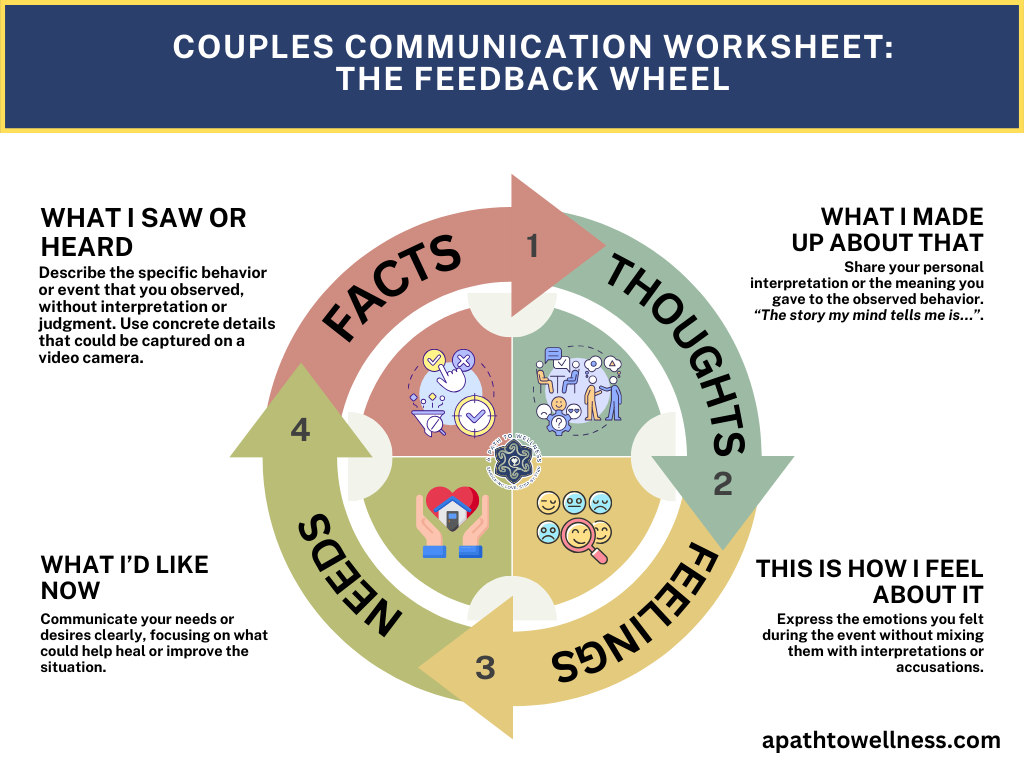Healthy communication is essential in any relationship, especially when dealing with conflicts. Daniel Wile’s book “After the Fight” offers valuable insights and practical strategies to help couples navigate the aftermath of arguments. Understanding and implementing these strategies can significantly enhance relationship dynamics and foster a deeper connection between partners. Here, we delve into the 7 keys for talking about a fight, inspired by Wile’s approach.
Understanding “I Statements” Versus “You Statements”
One of the most fundamental principles in effective communication is the use of “I statements” instead of “you statements.” When discussing a conflict, saying “I feel hurt when…” is much more constructive than saying “You always…” or “You never…” This subtle shift in language helps to express your feelings without sounding accusatory, which can prevent your partner from becoming defensive.
“I statements” allow you to take ownership of your emotions and experiences, making it easier for your partner to understand your perspective. This approach fosters empathy and encourages a more open and honest dialogue, paving the way for resolution and understanding.
Why “You Statements” Are Harmful
“You statements” often lead to a cycle of blame and defensiveness. They can make your partner feel attacked and misunderstood, escalating the conflict instead of resolving it. By focusing on your feelings and needs, you can avoid this pitfall and create a more conducive environment for constructive conversation.
Practical Tips for Using “I Statements”
- Start with “I feel” followed by an emotion.
- Avoid absolutes like “always” or “never.”
- Be specific about the behavior that triggered your feelings.
Taking Your Partner’s Point of View
Empathy is a cornerstone of healthy communication. Taking your partner’s point of view involves actively trying to understand their feelings, thoughts, and perspectives. This doesn’t mean you have to agree with them, but it does mean acknowledging their experiences as valid.
Steps to Practice Empathy
- Listen without interrupting.
- Reflect back what you hear to ensure understanding.
- Validate their feelings, even if you don’t agree with their perspective.
By demonstrating empathy, you show your partner that you respect and care about their feelings, which can significantly de-escalate tension and foster a deeper emotional connection.
“Nice Guy Backlash”: Recognizing Resentment
The “nice guy backlash” refers to the buildup of resentment that occurs when one partner continually suppresses their needs and feelings to keep the peace. Over time, this can lead to bitterness and passive-aggressive behavior, which undermines the relationship.
Identifying Signs of Resentment
- Feeling unappreciated or taken for granted.
- Experiencing frequent irritability or frustration.
- Engaging in passive-aggressive behaviors.
Addressing Resentment
It’s essential to express your needs and feelings honestly and assertively. Suppressing them for the sake of harmony often backfires, leading to greater conflict in the long run. Open communication about your needs can prevent resentment and promote mutual respect.
Expecting to Rekindle the Fight
After a heated argument, it’s natural to be wary of rekindling the fight. However, expecting and preparing for this possibility can actually help manage it more effectively. This doesn’t mean anticipating another fight but rather being mindful that unresolved issues may resurface.
Strategies to Manage Rekindling
- Set clear boundaries for discussions to avoid escalating emotions.
- Take breaks if the conversation becomes too heated.
- Agree on a signal or word to pause and regroup when tensions rise.
Understanding that conflicts are a normal part of any relationship and preparing for them can help mitigate their impact and facilitate smoother resolutions.
Looking for the Missing Piece
Often, conflicts persist because there’s a missing piece in the communication puzzle. This could be an unspoken feeling, an unmet need, or a misunderstood perspective. Identifying and addressing this missing piece can unlock new avenues for resolution.
How to Find the Missing Piece
- Reflect on your own feelings and needs that may not have been expressed.
- Encourage your partner to share their thoughts and feelings openly.
- Look for underlying issues that might be contributing to the conflict.
By being curious and open to discovering these missing pieces, you can gain deeper insights into the root causes of conflicts and address them more effectively.
Two Conflicting Missing Pieces
Sometimes, both partners have their own missing pieces, which can conflict with each other. This situation requires a delicate balance of understanding and compromise. Each partner’s unmet needs or unspoken feelings can clash, making it challenging to find common ground.
Navigating Conflicting Needs
- Practice active listening to fully understand each other’s perspectives.
- Look for compromises that address both partners’ needs.
- Be patient and give each other space to process emotions.
Recognizing and addressing both missing pieces can lead to a more balanced and equitable resolution, strengthening the relationship in the process.
Talking About Only Your Contribution to the Fight
Focusing solely on your contribution to the fight rather than pointing fingers can be a powerful strategy for resolution. This approach encourages self-reflection and accountability, which can pave the way for mutual understanding and reconciliation.
Benefits of Self-Reflection
- Promotes personal growth and self-awareness.
- Reduces defensiveness and blame.
- Encourages your partner to reflect on their own behavior.
How to Practice Self-Reflection
- Identify specific actions or words that contributed to the conflict.
- Acknowledge how these actions affected your partner.
- Apologize sincerely for your part in the argument.
By taking responsibility for your actions, you set a positive example and create a more respectful and constructive environment for discussing conflicts.
Conclusion
Navigating conflicts in a relationship can be challenging, but with the right tools and strategies, it’s possible to turn fights into opportunities for growth and deeper connection. Daniel Wile’s approach in “After the Fight” offers invaluable insights for couples looking to improve their communication and resolve conflicts effectively. By implementing these seven keys, you can foster a healthier, more understanding relationship and move forward together with greater harmony and mutual respect.
FAQs
What are “I statements” and why are they important?
“I statements” are a way of expressing your feelings without blaming your partner. They help prevent defensiveness and promote constructive dialogue.
How can I practice empathy during a conflict?
Listen actively, reflect back what you hear, and validate your partner’s feelings, even if you don’t agree with them.
What is the “nice guy backlash”?
The “nice guy backlash” refers to the resentment that builds up when one partner suppresses their needs and feelings to avoid conflict.
How can I prepare for the possibility of rekindling a fight?
Set boundaries, take breaks if needed, and agree on a signal to pause and regroup when tensions rise.
What is the “missing piece” in a conflict?
The missing piece is an unspoken feeling, unmet need, or misunderstood perspective that contributes to the persistence of a conflict.
How can I address conflicting missing pieces in a relationship?
Practice active listening, look for compromises, and be patient with each other as you work through your unmet needs and unspoken feelings.










